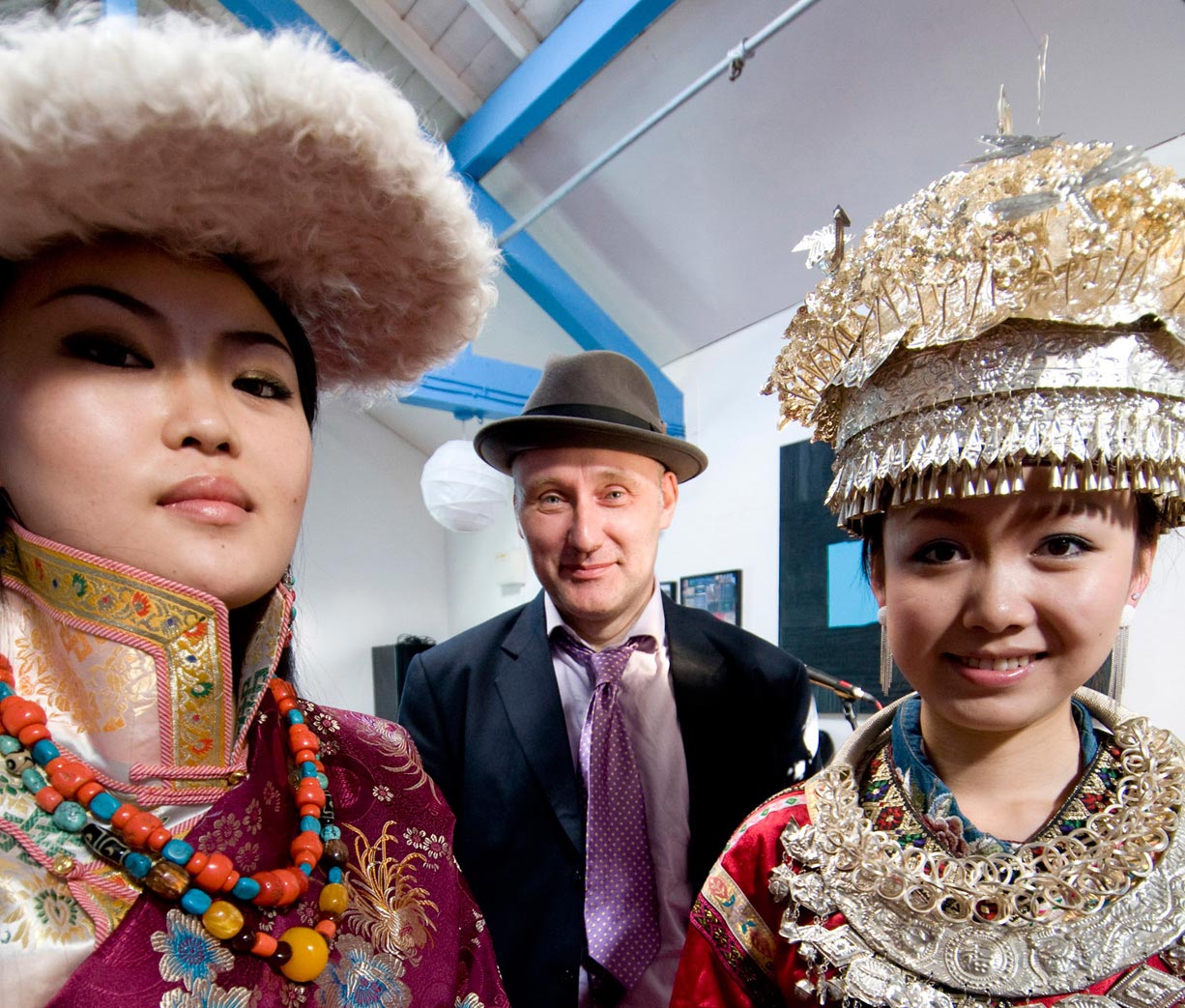This opportunity led Wardle and his wife, Zi Lan Liao, the arts-development officer at PCYO, to incorporate a theatrical aspect by adding singers and dancers into the mix. “I absolutely did not have any intention to do anything visual in regards to this, but it just mushroomed and mushroomed,” he says.
They headed to China’s Sichuan Province for inspiration and in hopes of contacting some Bian Lian performers to see if they would participate in the Chinese Dub Orchestra. “We went there on the lam, hustled around,” Wardle says. “We went to one of the opera shows, and that is how we made our connections.”
Wardle met a group of dance students in Hangzhou who had performed in England before but had an awful experience. “When they came [to England], they were treated terribly, their bags were left at the airport, and there was no food,” he says. “I heard about this and said, ‘Get them together, and I’ll look after them a bit because it’s embarrassing for them to be treated this way.’” Wardle took the group out for a meal as an apology for his country’s inhospitable ways. “I thought that I would never see them again, but they had heard that we were looking for performers and felt that this was their chance to help us out.”
With all of the performers on board, Wardle returned to England to work on combining these elements into a cohesive show. While setting up the event, his fascination with the craft of mask changing grew. He found out the hard way just how secretive the artists are about guarding their centuries-old craft. “At first I would joke with them and say, ‘Oh, how’d you do that?’ and they would become stone-faced,” he says. “I do have some idea of how they do it, but even if I knew exactly, I wouldn’t divulge it because it takes the romance of it away.”
The group first performed at The Capital of Culture performance on July 5, 2008. Wardle was amazed at the diverse audience that came out. “A lot of people that came to the show are people that would not necessarily come to a Jah Wobble show,” he says. “It really struck a chord with people.” The project’s positive reception and critical success led England’s Art Council to fund a national tour.
Wardle is interested in setting up a tour of China as well, but he doesn’t see that happening in the near future because it has been difficult to work through all of the performers’ schedules. “We have to make a decision on what shows we do and when people are available,” he says. “One of our performers joined the army and the last that we heard, she was up a mountain in central China firing surface-to-air missiles.”
The group’s self-titled album was released January 19 on Wardle’s label, 30 Hertz Records, which he started 10 years ago in order to have the freedom to record and release albums that allowed him to explore his own musical interests. “I was going into a phase where I was going to be making lots of music,” he says. “If I was in a major company, there’s no way that they would let me release three or four albums a year. I wanted to make a lot of music and relax as an artist.” Wardle is also considering creating a follow-up album of additional tracks as well as a documentary of the entire experience.
Though many of the theatrical aspects of the project, such as mask changing, traditionally tell a folktale, Wardle insists that there is no narrative behind the Chinese Dub Orchestra. That may be, but there is no denying that this project chronicles the story of a family united by music and a musician who refuses to create music on any terms other than his own. “Everyone is trying to seduce you away from your path, and it never stops,” Wardle says. “I’ll give myself this: I’m headstrong, dogmatic, and a pain in the ass at times, but I have always stayed true to myself.”

